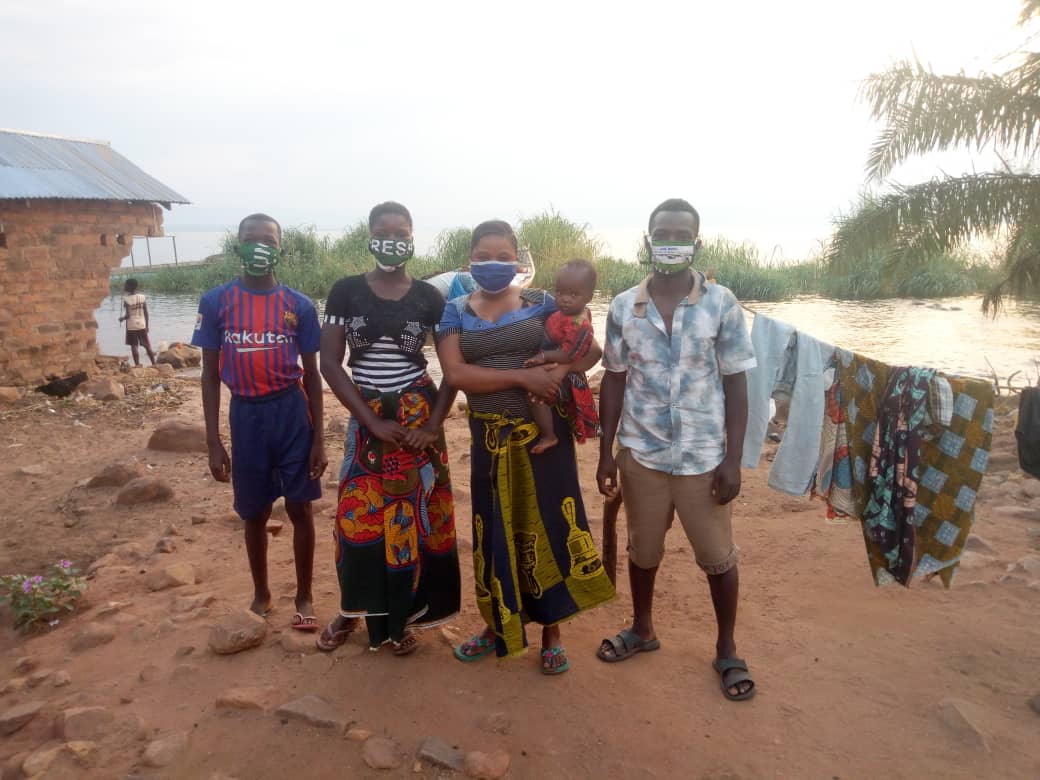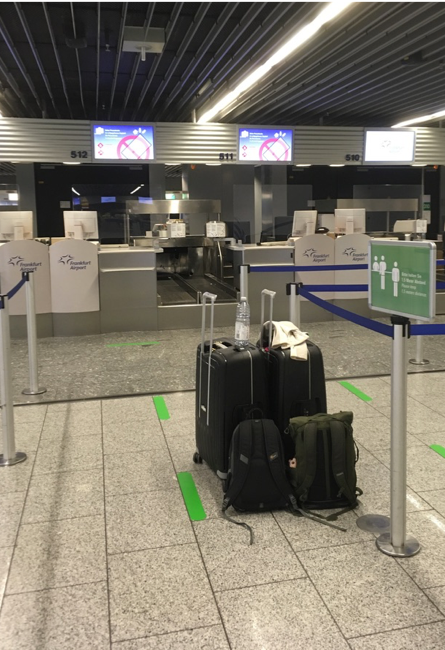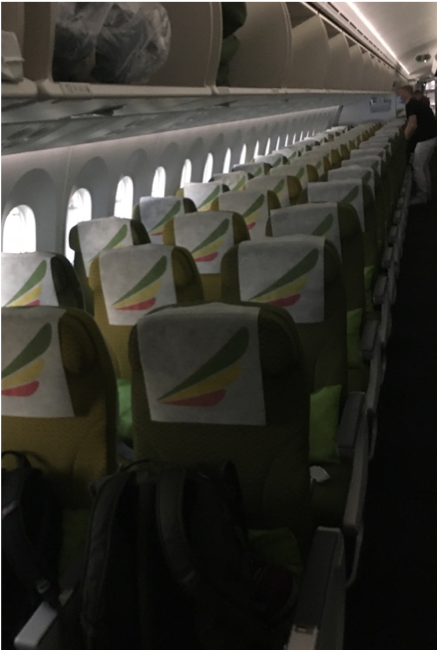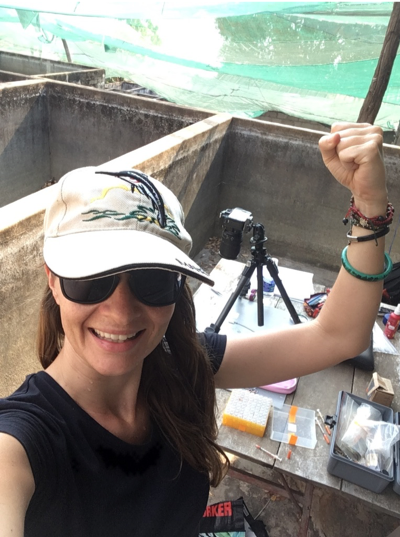
 A remote Zambian village at Lake Tanganyika.
A remote Zambian village at Lake Tanganyika.
As the number of diagnosed Covid-19 cases grows larger every day, the pandemic keeps affecting the world. For scientists, it means that conferences, meetings and workshops are still being cancelled, online teaching substituted for personal interactions, and whole laboratories and institutes are shut down, without any certainty about when they will reopen again. While some scientific activities have successfully moved online, others - like laboratory experiments, use of equipment, and field work - must be done in person, despite all the obstacles put in our way. As early career researchers, in particular, we fear for our future. We often depend on short-term positions, grants or fellowships, which makes it extremely difficult to postpone core components of our research by one or two years. But we can act now and fight for our career.
My personal mission impossible during the pandemic
Field work is unavoidably connected with travelling – one of the activities that became a “no go” during the pandemic. In my ongoing postdoctoral project, I investigate the role of behaviour in one of the most impressive adaptive radiations on our planet: the cichlid fishes of Lake Tanganyika. To understand how behaviours differ among species and to connect this understanding with the ecology of the adaptive radiation, I need to study cichlid fishes in the wild. Hence, the success of my research completely depends on field work, which I conduct in the northern part of Zambia, at the shores of Lake Tanganyika. About 60 percent of my data collection had been accomplished before the pandemic started. By then, nobody could even imagine that our ability to move around the world would change so dramatically. But when borders began to close and airlines stopped flying, I needed to weigh-up my limited options: 1) change to another project that is independent of field work, 2) use my data set as it is and try to publish, 3) be stubborn and fight for my field work season.
While some researchers may be able to postpone their field trip and focus, for example, on theoretical or computational work, this is not an option for many other projects. I work and live on a research grant that is focussed on the goals of my field work-based research program which is running out soon. For two years, I had invested all my resources in this ambitious project. It might have been possible to publish the incomplete data set but analysis plans would have to be scaled back, conclusions would necessarily be tentative, and the scientific impact of my work would fall far short of my aspirations. After thinking about my frustrating possibilities, I became more and more determined to accept the challenge and to find a way to safely fly to Zambia and finish up my field work. I was in the very fortunate position that my institution allowed me to fly and that funding from my mentor made the travel possible. Still, the difficulties involved in planning and getting to Zambia exceeded my worst expectations.
Uncertainty and misinformation were the worst obstacles
My office in Switzerland is not exactly close to Zambia, but in the middle of the pandemic it felt more disconnected than ever. Immigration offices, airports, embassies, airlines, consulates all had restricted working hours or were completely unavailable. Hours, days, weeks of calling…I’ve never done anything more frustrating than that. Field work in Africa has never been without obstacles. Political crises or other (local) pandemics used to cause immense difficulties for other researchers - including the working group of my mentor- in previous years. This time, I found myself in a Kafkaesque maze between completely contradictory information and no information at all. Regulations regarding entering Zambia changed weekly, flights were cancelled daily. Would Zambia let me in? And would the airline allow me to fly with the documents I was able to provide? After two months of preparation for all worst-case scenarios I could think of, I travelled to the airport in Germany with 60 kg of scientific equipment in my suitcases and very mixed feelings. Before I could even check-in, three levels of authorities of the airline repeatedly told me that I was absolutely not allowed to fly. Only with the help of an incredibly dedicated lady and her colleagues from the Zambian embassy in Berlin, did I managed to eventually persuade the airline staff to let me enter the empty plane and leave Europe. At the airport in Ethiopia, the same discussions started again and I reached my connection flight last minute. After a second Corona test on arrival in Lusaka, lots of paperwork and standing my ground at the immigration office, I won the final travel-related bureaucratic battle and could concentrate on the “normal” obstacles that comes with field work in Africa.
The essence of what I found to be necessary to reach my allegedly impossible goal during the pandemic is:
- Invest a lot of time in soliciting information and support from as many people as possible. One hundred negative answers can be followed by the one “yes” that makes the difference.
- Get official documents stating support for your goal and try to follow up-to-date regulations. For example, the Swiss health ministry quarantine rules currently have an exception for professional travel for a reason that cannot be postponed. Similar exceptions may apply to your case.
- With regulations changing daily, many employees and officials are themselves unsure what to do. Attitude makes a big difference in times of uncertainty. Do not give up and stand your ground! In my case, I spent one and a half hours in discussions at the airport check-in, receiving one “no” after the other. Only because I was tenacious - like an old donkey- did the person at the check-in let me speak to the highest area manager who knew the latest regulations and eventually gave me his permission.
Is travelling during the Covid pandemic irresponsible?
Navigating through regulations and restrictions is one thing, but the more pertinent question is whether I feel that my actions put lives at an increased risk, compared with my usual activity. In my case, the answer was: no! Travel itself does not necessarily increase a risk of disease transmission; social contact does. Travelling is very different during the pandemic and it might come with increased costs. However, careful behaviour and good planning can prevent an increased risk of getting and transferring the virus. The three Corona tests (before travelling, after arrival in the country of destination and after arrival back to the home country) provided additional reassurance.
As the pandemic restricted many touristic activities, trains, airports and planes are much less crowded, in fact, often spookily empty. Also, renting a car can be an option. For me, it was possible to practice social distancing at all times during my travel. I bought several of the safest face masks and wore them throughout the travel to protect myself and others. In Zambia, I usually take the bus to get to Lake Tanganyika. This time, it had to be a car – no other person with me but my field assistant. At the research station, it was matter of discipline to keep social distance but this was just as possible as in my home country. In fact, I was in such a remote place and interacted with so few people, I am certain that my social contacts have been much more limited than they would be at home.


Post-apocalyptic feeling at the airport and on the flight. Social distancing was an easy exercise.
Personal résumé
My field work was not only necessary for my research but also a unique and valuable experience. Without the great help of my mentor and all our collaboration partners, I would not have been able to save my project. I wish that all early career researchers could have such support to navigate through this crisis. It is necessary to allow PhD students and postdocs a higher budget to be safe during the pandemic. Careful and creative solution can be found to responsibly go on with planned research activities.
The pandemic has taught me to fight for my project and spin and even tighter social network – you can be safe and successful. After all, do not let COVID-19 ruin the career of us, the young researchers.

Acknowledgments
I thank the German Research Council (DFG) for the financial support under the grant number SO 1737/1-1. Furthermore, I am very grateful for the great overall support from my mentor Walter Salzburger. Furthermore, I would like to thank Walter Salzburger, Patrik Nosil and Milan Malinsky for their very valuable comments on the first version of the manuscript.
Supplementary material: https://caribiology.science.blog


Please sign in or register for FREE
If you are a registered user on Research Communities by Springer Nature, please sign in